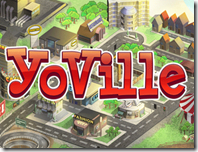What prompted me to write this was that I wanted to do some quick back of the napkin calculation/exercise after seeing this post about “Convert”, a #2 top paid application (in the app store) case study on an iPhone App (which btw, looks like an awesome product, but…).
It made me think:
WHY THE HELL WOULD SOMEONE WANT TO TRY TO MAKE MONEY BUILDING IPHONE APPS? (instead of building facebook apps, or getting a real job ;)
The post is a quick case study/snap shot of a #2 app paid app that is in the Apple App store. The post shows that in the last 7 days, its roughly averaged roughly 4,000 downloads a day, peaking out at a bit over 6,000. Each download is priced at (the magical) $1.00 price point.
Lets be a bit generous and say they were able to turn the 6,000 download figure into something that became 8,000 downloads (peaks out at 30% growth… which is generous given there is little virality in the iPhone space) for every single day for the next 30 days – and stays on top of the AppStore “Top Seller” list.
That would equal $240,000 in revenues assuming 8,000 downloads each and every day of the month for 30 days, which given the way that apps are churned/cycled though the app store, there is little likelihood that would ever happen. But lets just say that it did.
So what would you need to do on the Facebook side as a social game/app developer to achieve the same results?
Social game developers commonly report $0.20 to $0.50 in revenues for each Monthly Active User (MAU) per month - via virtual currency sales within social games via offers (gambit/super rewards/others) and or direct transactions (paypal, sparechange, zong etc.)
Quite simply, what this means is that you’d need to create an app that ranged from 500k to 1M users to achieve the same results.
So in summary:
iPhone:
- BEST case top 3 app on AppStore
- Generates 8,000 downloads a day @ $1.00 per download
- Month 1 Revenues: $240,000 in next 30 days (under amazingly positive circumstances)
Facebook:
- Builds a reasonably successful Social Game with standard game mechanics targeting a sizeable vertical
- Social game that monetizes at the middle/lower part of the range ($0.25-$0.50 / month / MAU)
- Needs to generate 500,000 to 1 million MAUs to achieve the same results in one month
- BUT: The facebook game is likely to also (1) be able to sustain this revenue stream over several months, (2) grow its user-base via engineered viral distribution channels/strategies via “social distribution” vs. being at the mercy of the Apple Store.
So lets say a Facebook game has a life expectancy of roughly 4 months: this means that for the average developer, they would have 3 months to achieve the same amount of revenues – meaning 1/4 of the MAUs to achieve the same results. Translation: you could make the same amount of money with roughly 100,000-250,000 MAUs (kept at that level over 4 months).
Now to put this into context, while not ALL apps are social games (and therefore usually not as easily monetized/have lower ARPU) there are over 500 apps on facebook that have over 100,000 MAUs, and nearly 300 apps with over 250,000 MAUs.
There are of course massive distribution benefit’s on Facebook as well, the most important of which is you CAN engineer your distribution/exposure via viral optimization (i.e. A/B testing and engineering your viral loop and messaging channels, or optimizing your seeding/media buys… at the risk of losing all credibility here – not that i assumed that i had any to begin with, heh - you may want to consider looking at using Kontagent for doing some of this?… ;).
I’m no doubt casting a very rough estimate on the topic, and I am more familiar with the economics behind the FB development world than the iPhone app development world, and I’d love to see some of my friends on the iPhone side correct me on this.
To me, there is almost no question that right now, social games on Facebook has better economics given the limitations of the iPhone – and I’m most certainally no the only one that thinks that. The real question for me are: (a) how much better is it really? 2x, 5x, 10x? and (b) what needs to change for mobile social apps/games to take off, and when will it happen?
But just keep in mind as you’re bashing this that this is really meant to be a back of the envelope calculation, and wanted to get some feedback on the topic.
Bottomline: Purely economically speaking – it sucks to build iPhone App relative to Facebook Games. iPhone games have no good distribution options, little virality, extremely high churn, revenue share requirements, pain in the ass approval process, a relatively small total addressable audience (compared to FB).
Yes, its a bit of an apples and oranges comparison (no pun intended). But I don’t care. =P
[update: here’s another case study that happens to echo my sentiments]
[update #2: here are two comments from my Facebook Note/Blog – both from people that I respect & trust from both the iPhone camp (Greg Yardley/Founder/CEO/PinchMedia) and the Facebook camp (Siqi Chen/Founder/CEO/SeriousBusiness). They agrees with the above and passes the reality/bias check. =) ]
Agree.
yeah, this is pretty much correct.
[update #3: ironically, Om at GigaOm has also posted something about the iPhone App space today, with a (questionable) survey that was posted by AdMob that implies that the mobile app space is making $200M a month… here’s my quick 2 cents:
Hey Om, I have to agree with Sourabh above (and call BS on the “Survey” results).
Timing of this post is intersting, as I just did a quick back of the envelope economic/case-study of a recent/current top (#2) paid app on the app store here:http://bit.ly/2VgTF
I find it difficult to believe that the iPhone app space is 5-10x bigger than the Facebook app space given the economics and user metrics.
You can roughly guesstimate the SNS app/game space being $500M market ($100M for Zynga, $40M/$40M for playdom/playfish, and lets call it 3x-4x that for the rest), with a user base of 400M users (FB+MySpace+OpenSocial) vs. ~1/10th of that on the iPhone side.
ARPU on the social game side is $0.20 to $1 per MAU.
According to AdMob’s survey, iPhone app market is 5x that of the SNS app/game market given that the space has 1/10th the reach of SNS apps (~40M vs ~400M users)?
The other thing that throws me off the most is the”survey results”/assumption that shows 50% of users spend $10/month on AVERAGE on Apps. That number just strikes me as being highly optimistic/inflated as an average.
That said, I could see a day that the mobile app space makes $240M a month… that day just isn’t today.
Also, it could be argued I’m just as biased towards Facebook as a founder of Kontagent (facebook analytics) as AdMob (mobile analytics/ads) is for towards the iPhone. =)]


